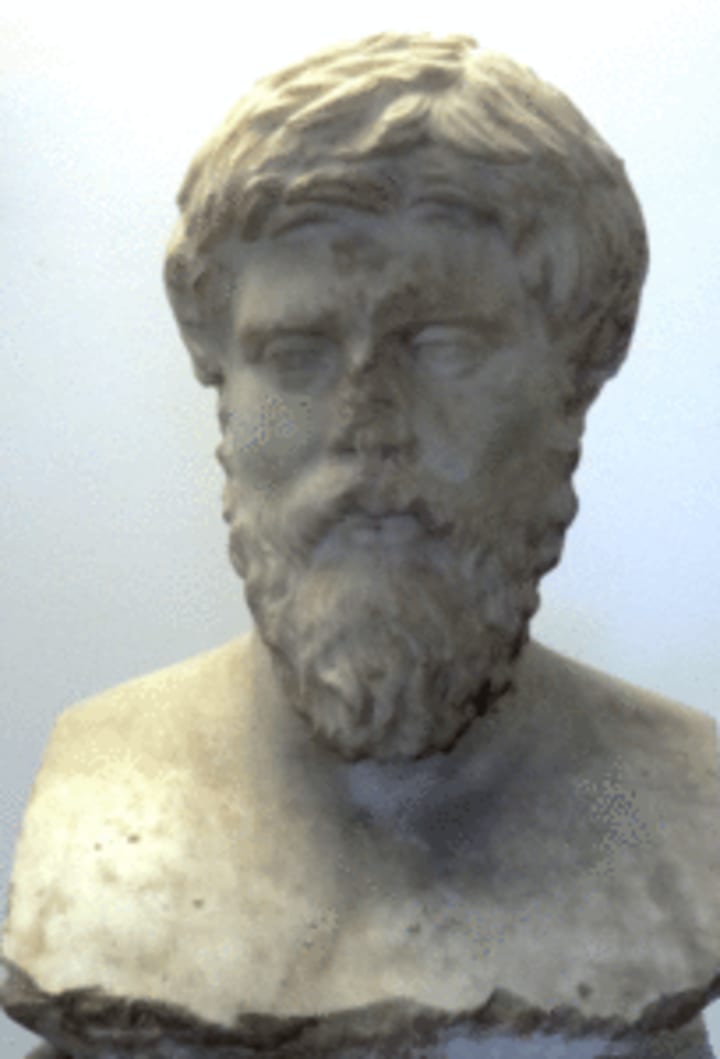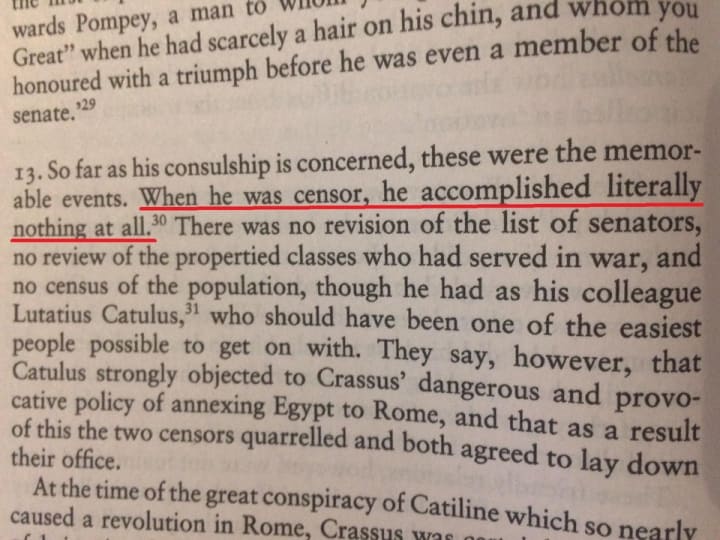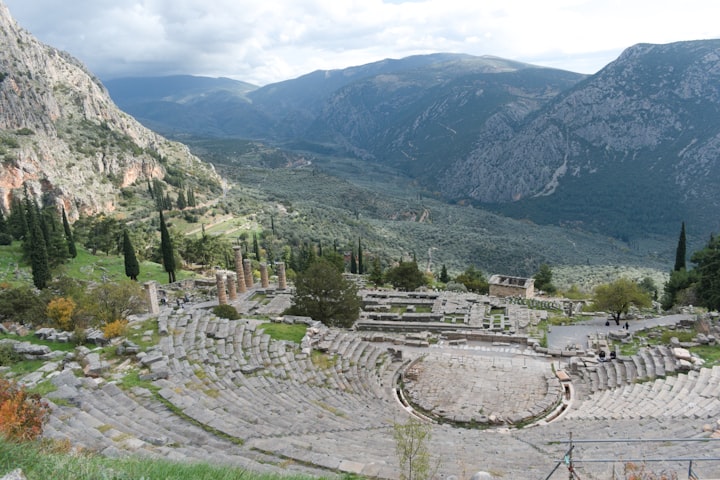Plutarch: The Original Influencer
Character and Virtue Are Timeless
Lucius Mestrius Plutarchus was born in 46 AD and died around 119 AD. Although he was born in Chaeronea, Boeotia, Greece, Rome ruled the area at the time. Lucius Mestrius was added to his name when he was granted Roman citizenship. Throughout his life, he was a philosopher. The core of his philosophy was Platonic but he did borrow from other philosophies like the Stoics and Peripatetics. Other vocations listed for him are biographer and essayist. He was also a priest at the Temple of Apollo in Delphi.
Delphi was only 80 miles from his birthplace. Plutarch did travel to Rome on more than one occasion but he preferred a quieter life in Greece. He did marry and have children; that may be the reason he wanted to remain in the area where he grew up.

Plutarch is often maligned because his works were too biased in favor of Greece. To that, I respond on his behalf he was Greek and he wasn’t a historian. His main interest was in bringing the character of historical men to light. Plutarch was interested in the morals and virtue of men throughout history. At a time when a positive spin was put on the good and the bad, he wrote about people as they truly were; flaws and all.
‘I do not write Histories, but Lives.’ -Plutarch
For example, in Plutarch’s Parallel Lives, he compares and contrasts Alexander the Great 356 BC-323 BC with Julius Ceasar 100 BC-44 BC. Parallel Lives is a compilation of biographies of over twenty Greeks and over twenty Romans. Plutarch writes a biography for a Greek and Roman that he felt led similar lives. After each pair of biographies, he compares the lives of the men. It’s not a comparison of accomplishments and battles won, it’s a comparison of their character and judgment.
During Plutarch’s lifetime, Greece was ruled by Rome. For me, that makes Parallel Lives a very ballsy work. When describing Marcus Crassus (the richest man in Rome and winner of the Third Servile War against Spartacus) he uses the word ‘avarice’ to describe him. While it’s accurate, I can’t imagine it was well-received by Roman readers. To paraphrase, he says that Crassus was so much of an imbecile, that his imbecility was stronger than Rome’s fortunes in battle. Crassus had invaded Parthia to obtain more wealth. He lost his son, his army, and his life.

‘Character is simply habit long continued.’ -Plutarch
Another of Plutarch’s works that is still relevant today, with some slight tweaking for our time period is The Moralia. The Moralia is a collection of Plutarch’s essays about morals and ethics. I think about all of the seven deadly sins are represented. Essays about love, children, and education are also included. In his essay titled How One May Discern a Flatterer from a Friend, my favorite quote is:
‘I do not need a friend to change his opinions with me and to assent to me in everything, my shadow will do that better, but I need one that will speak the truth and help me with his judgment.’
‘Those who aim at great deeds must also suffer greatly.’ -Plutarch
Plutarch’s influence can be seen throughout literary history. For a time his works were used as school books in Greece. In the latter part of the 16th century, Sir Thomas North translated Plutarch’s Parallel Lives into English. Shakespeare used that translation as the source material for his Roman history plays, even incorporating whole sections of the translations with minimal changes.
It is even said that his writings inspired the leaders of the French Revolution. In particular, writings that involved morality and tyrannical leaders being overthrown. Napoleon and George Washington also found inspiration in Plutarch’s Parallel Lives.
‘A few vices are sufficient to darken many virtues’ -Plutarch
To me, Plutarch’s writings about building character, virtue, ethics, and morality are timeless. I find Parallel Lives to be the kind of book we need today but one that can’t be written due to the climate. Comparing more contemporary historical figures in such a way that highlights their character, both good and bad aspects, could be useful to learn from past mistakes and strive for growth in our own characters.
About the Creator
Yvonne Lovejoy
Writing has always been a part of me. My dream could die with failure or would live on if I never tried. Time for that to change. Follow me https://linktr.ee/YvonneWriting and be sure to click like on any stories you enjoy.







Comments
There are no comments for this story
Be the first to respond and start the conversation.